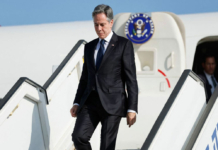The Afghan Taliban have reportedly disallowed extremist groups including the Tehreek-i-Taliban Pakistan (TTP) and al-Qaeda from using Afghanistan’s soil to plot terror against Pakistan and other countries.
Journalist Hasan Abdullah claimed that several sources told him that the TTP along with others like al-Qaeda, the Islamic Movement of Uzbekistan (IMU) and the East Turkistan Islamic Movement (ETIM) were prohibited from attacking countries like Uzbekistan, Pakistan, and China from Afghanistan. Abdullah added that the policy was a double-edged sword for the Afghan Taliban who could not afford to let extremism entrench its roots in the country, but also couldn’t isolate groups that had supported them during the US foreign occupation.
Afghanistan becoming a hotbed for TTP operations against Pakistan has been a national concern since the Afghan Taliban reclaimed Kabul on August 15. As US withdrew its troops from the region, scores of TTP prisoners were freed in Afghanistan. On August 22, Interior Minister Sheikh Rasheed asserted that Pakistan told the Afghan Taliban that Pakistan’s soil would not be used against Afghanistan and that Pakistan hoped the same vice versa.
The concern of Afghanistan being vulnerable to becoming a terrorist breeding ground was echoed internationally by the United Nations Security Council (UNSC) late august. The UNSC adopted resolution 2593, which demanded that Afghanistan abstain from harbouring terrorists or allowing its land to be used as a base to threaten or attack other countries.







